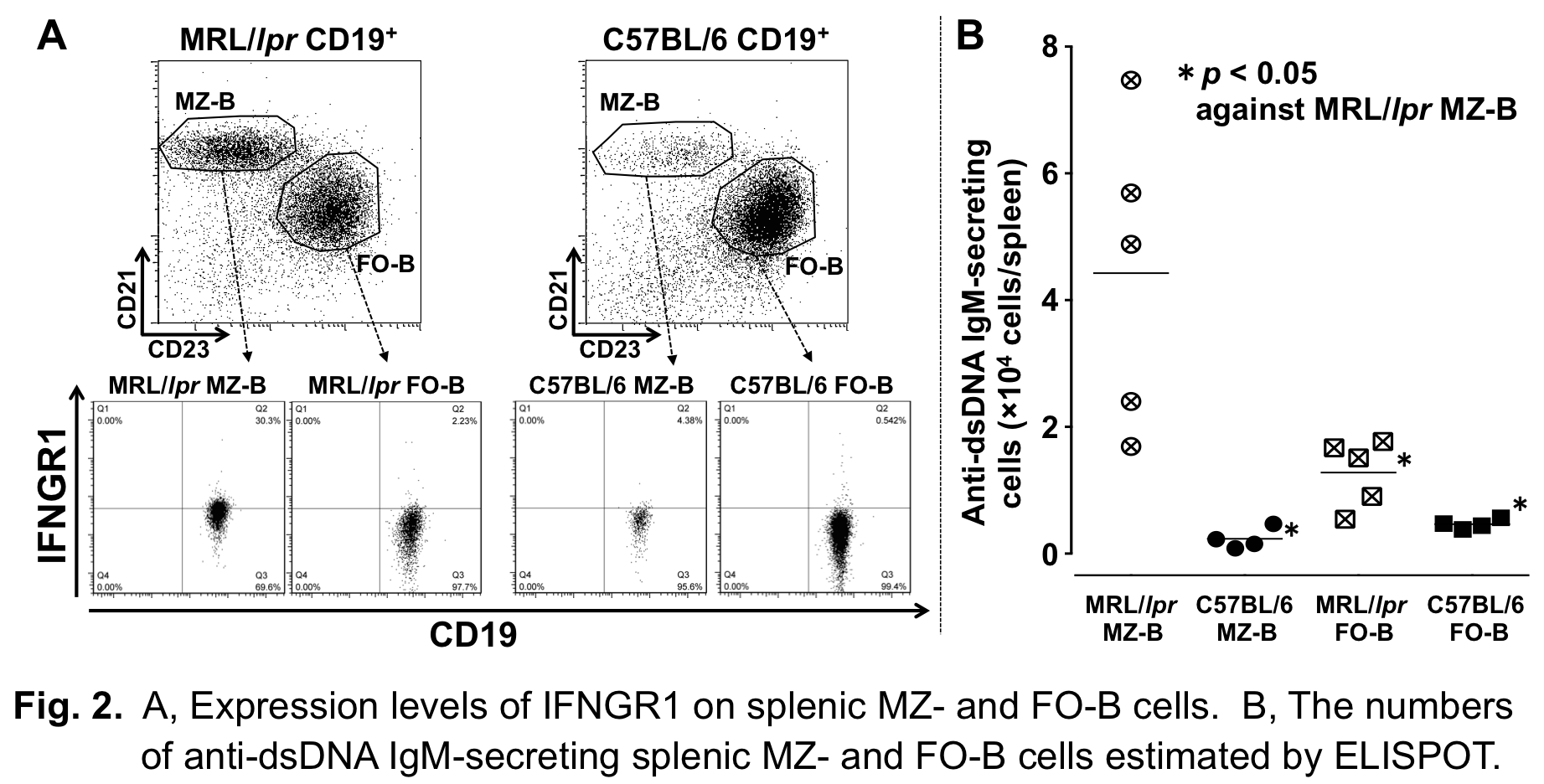Session Information
Title: B cell Biology and Targets in Autoimmune Disease: Systemic Lupus Erythematosus and Related Diseases
Session Type: Abstract Submissions (ACR)
Background/Purpose: It had been reported previously that IFN-gamma and IFN-gamma-receptor-1 (IFNGR1) were required for auto-Ab production and development of renal disease in lupus-prone MRL/lpr mice. At ACR 2011, we reported that MRL/lpr mice deficient for the transcription factor IFN regulatory factor-4 (IRF-4), that is required for Th2/Th17 differentiation, developed granulomas in multiple organs with significantly increased numbers of IFN-gamma-producing CD4+ T cells (Th1 cells) and high serum IFN-gamma levels after 12 weeks of age (Fig. 1A). Strikingly, unlike their WT littermates, they also exhibited total loss of splenic CD19+IgM+ B cells by 12 weeks of age. Similar B cell loss was observed in Irf4-/- MRL+/+ mice but not in Irf4-/- C57BL/6 mice, suggesting a role for IFN-gamma in survival of peripheral B cells in mice with an MRL background. This study aimed to further define roles for IFN-gamma in survival of peripheral B cells and in development of autoreactive B cells in MRL/lpr mice.
Methods: Irf4/Ifng or Irf4/Ifngr1 double-gene knockout MRL/lpr mice were generated by backcrossing with C57BL/6 mice lacking corresponding genes for 8 generations. Expression levels of CD19, IgM, CD21, CD23, and IFNGR1 on splenic B cells were analyzed by flow. Splenic follicular (FO)- and marginal zone (MZ)-B cells were isolated by cell sorting and frequency of anti-dsDNA Ab-secreting cells was quantified by ELISPOT assay.
Results: The splenic B cell loss observed in Irf4-/- MRL/lpr mice was restored in Irf4-/-Ifng-/- and Irf4-/-Ifngr1-/- MRL/lpr mice even after 12 weeks of age (Fig. 1B).

CD21hiCD23lo MZ-B cells of WT MRL/lpr and MRL+/+ mice showed high IFNGR1 expression levels compared to their CD21loCD23hi FO-B cells. In contrast, MZ- and FO-B cells of C57BL/6 mice showed minimal IFNGR1 expression (Fig. 2A). MZ-B cells of MRL/lpr mice showed significantly increased frequency of anti-dsDNA IgM-secreting cells compared to their FO-B cells or MZ/FO-B cells of C57BL/6 mice (Fig. 2B).

Conclusion: Our results suggest a dual role for IFN-gamma in peripheral B-cell development in murine lupus: expression of IFNGR1 on splenic B cells, especially on MZ-B cells, is required for development of autoreactive B cells whereas high levels of serum IFN-gamma impact on their survival.
Disclosure:
T. Machida,
None;
N. Sakamoto,
None;
G. S. Gilkeson,
None;
H. Sekine,
None.
« Back to 2014 ACR/ARHP Annual Meeting
ACR Meeting Abstracts - https://acrabstracts.org/abstract/a-dual-role-for-ifn-%ce%b3-in-development-of-peripheral-b-cells-in-lupus-prone-mrllpr-mice/
